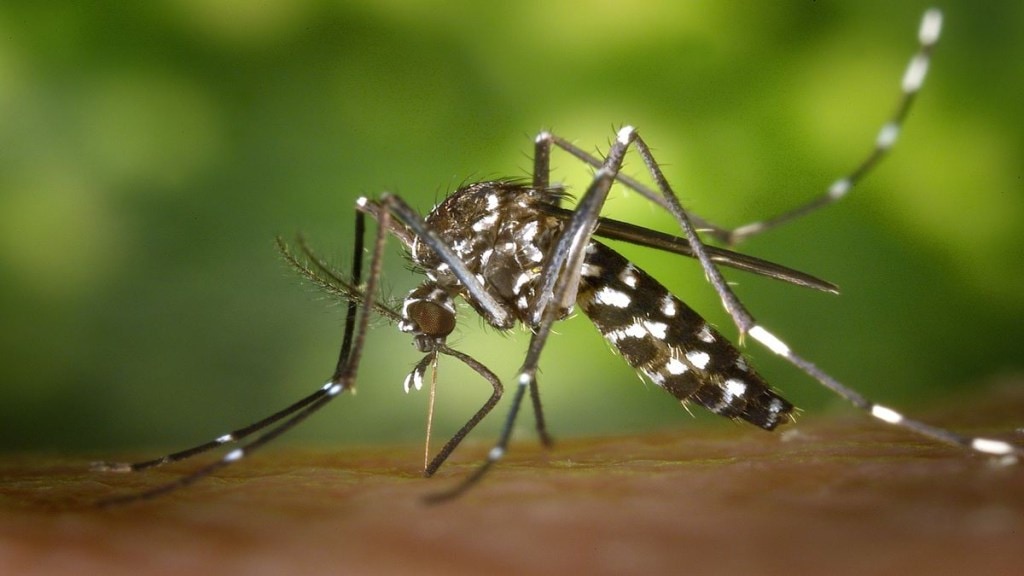World Malaria Day 2024: Malaria is a serious disease that occurs when a person get bitten by mosquito. When a mosquito bites, it injects malaria parasites into your bloodstream.
If left untreated, malaria can lead to serious complications like seizures, brain damage, trouble breathing, organ failure and even death. Every year, April 25 is marked as the World Malaria Day to raise awareness the about the vector-borne disease and its impact.
Malaria occurs all over the world and happens most often in developing countries and areas with warm temperatures and high humidity.
World Malaria Day 2024: Here’s what you shouldn’t do when suffering from malaria
Malaria is a serious illness, and taking the wrong steps can worsen your condition. According to Dr Rajesh Kumar Budhiraja, Director, Internal Medicine, Fortis Escorts Faridabad, here’s what to avoid for a safe and swift recovery:
- Chills, fever, and sweats are classic symptoms, but headaches, muscle aches, nausea, and fatigue can also be red flags. Don’t dismiss these – seek medical attention immediately.
- Over-the-counter medications won’t eradicate malaria. Delaying proper treatment with prescribed drugs can lead to severe complications like organ damage, anemia, and even coma. While some traditional remedies might offer temporary relief from symptoms, they shouldn’t replace medication from a healthcare professional.
- Don’t be fooled if symptoms disappear after initial treatment. Malaria can return. If chills, fever, or other issues resurface, see a doctor to rule out relapse. If you’re in an area with malaria, sleeping under a mosquito net treated with insecticide is crucial to prevent further bites that could worsen your condition.
“By prioritizing professional medical help, avoiding self-treatment, and taking preventive measures like mosquito nets, you significantly increase your chances of a full recovery from malaria,” Dr. Budhiraja told Financial Express.com.
Accordiing to Dr Tushar Tayal, Lead Consultant, Department of Internal Medicine, CK Birla Hospital, Gurugram, some things that you shouldn’t do while suffering from malaria are:
- Miss out on sleep – our body recovers when we are sleeping and our sleep requirement increases during any acute illness . Ensure that you get 10-12 hrs of sleep while suffering from any illness
- Reduced water intake- hydration is extremely important during any illness . Reducing water intake affects our metabolism and may decrease elimination of toxins from the body
- Excess tea and coffee – tea and coffee have diuretic action and may cause dehydration and affect recovery
- Exercise – overexertion during any acute illness can cause muscle injury which can delay recovery. Avoid any form of severe exercise during illness
- Commercial and prepackaged foods- our requirement for proteins is high during recovery . Prepackaged foods are rich in sugar and trans fat rich which are detrimental for the health
- Not having enough fruits and vegetables –fresh fruits and vegetables are rich in vitamins and antioxidants which are necessary for all enzymatic processes aiding in recovery
- Not following doctors advice and prescription- please ensure that you complete the course of medication as prescribed by the doctor because malaria can relapse if the medication is not taken as per schedule
World Malaria Day 2024: What are the causes?
Malaria is caused by a single-celled parasite of the genus plasmodium. This parasite is transmitted to humans most commonly through mosquito bites. According to Cleveland Clinic, when an infected mosquito bites someone, it transfers the parasite to the person’s bloodstream and then the parasites multiply. There are five types of malaria parasites that can infect humans. In some rare cases, people who are pregnant and who have malaria can transfer the disease to their children before or during birth.
World Malaria Day 2024: What are the symptoms?
Signs and symptoms of malaria include:
- Fever and sweating.
- Chills that shake your whole body.
- Headache and muscle aches.
- Fatigue.
- Chest pain, breathing problems and cough.
- Diarrhea, nausea and vomiting.
As malaria gets worse, it can cause anemia and jaundice. According to the Cleveland Clinic, the most severe form of malaria, which may progress to a coma, is known as cerebral malaria. This type represents about 15 percent of deaths in children and nearly 20 percent of adult deaths. It is noteworthy that malaria symptoms usually appear 10 days to one month after the person was infected.
World Malaria Day 2024: What are the precautions that you should take?
- Cover your skin
- Apply insect repellent to skin
- Apply repellent to clothing
- Sleep inside a mosquito net
- Put screens on windows and doors

